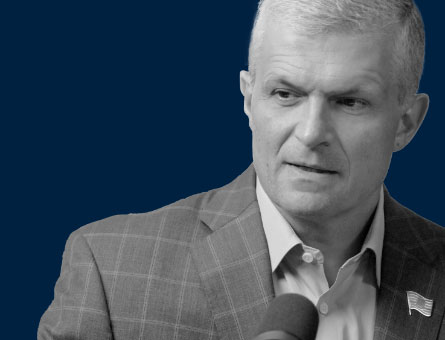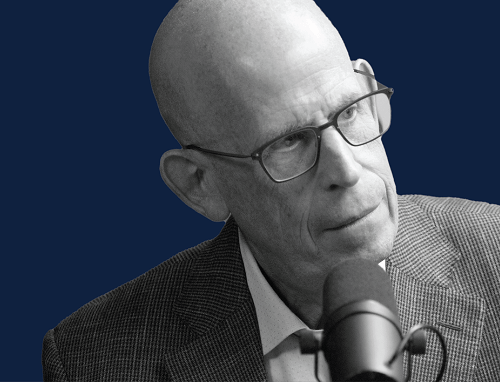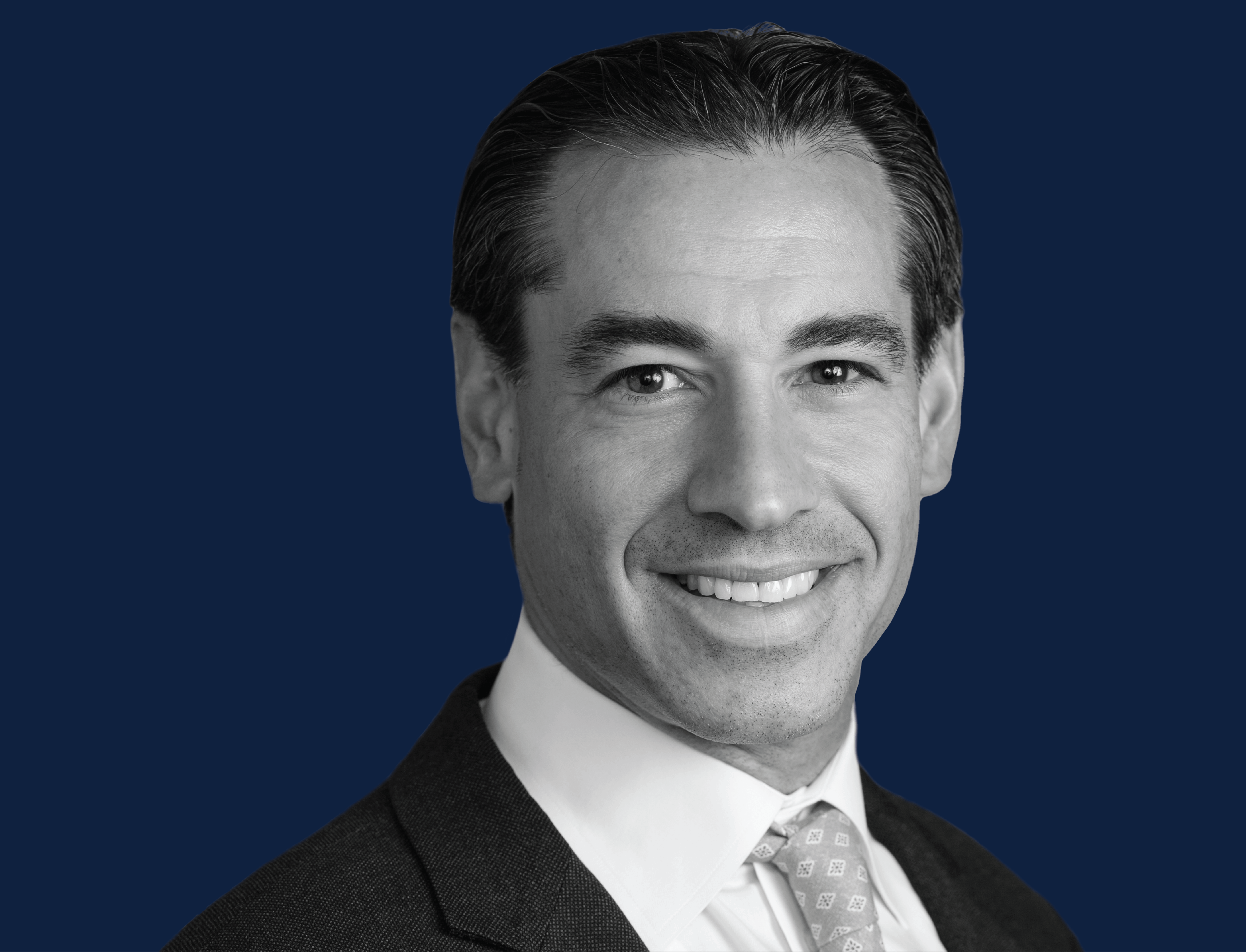Published August 29, 2023 | 3 min read
Key Points
- There's a growing conviction that we're heading for a soft landing and that 2024 could be a constructive year.
- As investors see equity markets stabilize; they're going to be eager to deploy capital.
- Consumers drive the US economy – opening the way to risk. As student debt repayment picks up, it could cause more defaults.
- Private Equity attracted a staggering $10.7 trillion of capital in the last decade. To many investors, the resilience and attractiveness of this asset class, will remain.
- Regulators are putting sponsors in their sights. The time, the cost and the work required to get transactions approved will increase markedly.
What will deals look like going into 2024?
Vito Sperduto: Looking forward to H2 2023 and 2024, we've got the S&P and the Dow at 52-week highs and approaching their 2021 peaks. There's a market sentiment that the Fed is done with rate hikes. What do you expect deal flow look like?
Harold Varah: Our clients think that the Fed is done, and there's a growing conviction that we're heading for a soft landing and that 2024 could be a constructive year. Investors from private equity are incredibly creative. They're going to find ways to do deals and monetize assets.
On the dealmaking front, with the macroeconomic outlook improving and a stronger leveraged finance market on the syndicated side, it's incredibly resilient. Both for loans and bonds. I expect to see many take-privates in the next 12-to-24 months. While corporates will continue building their war chests and divesting assets, they deem non-core. Potentially even selling assets that have been part of corporate portfolios for decades.
Vito Sperduto: I think the market is much more accepting of those divestitures now. Especially if they can be portrayed as focusing on core business. You can get a valuation uptick because you’ve refocused the brand. John, what types of deals are being financed this year and next?
John Cokinos: The Fed removed recession from their case. So, that’s as clear a signal you're going to get from them. Though they have been wrong before. I think the markets, like investors, played it too safe at the start of the year, and now they're looking to play catch-up.
As we enter a more stable world, investors are going to want to diversify into industrials as the economy grows. They will take on more cyclical risks, industrial risks, healthcare, consumer, versus sticking to infrastructure, and durable, more predictable businesses.
For 2024, the current cost of capital, the high yield index is at 8.5%, the loan index is at 9%. Those are great entry points for investors. And as they see equity markets stabilize; they're going to be eager to deploy capital.
What can we expect of the fundraising environment?
Harold Varah: We need to understand the fundraising environment. Sponsors are going to want to monetize their portfolio assets. They want to recycle that capital back to the LPs at good returns. How? They sell to strategics. That's difficult. But when it happens, it can be incredibly lucrative.
Other sponsors? That hasn't been in vogue lately. And in the IPO market, we've just seen a tremendous falloff in new issuance versus 2021. Those factors are causing a backlog.
There's been a 35% drop in the time between successive fundraisers. In 2022, the average fund ask was 50% higher than the predecessor fund. So not only is there a faster turnaround, but the size of that ask also has increased. Now, I do think we will see the fundraising environment improve. But it's going to take some time.
Vito Sperduto: Do you think what you just described is a driver of those LPs starting to go back to a more distributed set of funds and going to a broader audience, versus concentrating on the larger funds?
Harold Varah: It's a consequence of them having less liquidity. They're still going to go make those bets on a fewer number of sponsors and make them bigger. Certain sponsors, who haven’t reached that top decile performance, have struggled to raise funds. It's never good when your successive fund is smaller than the prior one.
Watch for cracks in the consumer
Larry Grafstein: John, what do you see as the biggest risks to the credit markets right now? What could slow us down?
John Cokinos: My biggest concern is the strength of the consumer. Today’s GDP figures show a strong US economy. But it’s driven by consumer consumption. And as student debt repayment picks up, and as we exhaust savings, that could cause a big pickup in defaults. Which really affects the leveraged finance markets. So far, we have been predicting this, but we haven't seen it.
Larry Grafstein: And that's pretty remarkable.
John Cokinos: But we haven't lived with 5.5% rates for long yet, it's probably going to be another year. So, we'll watch out for cracks in the armour.
The direct capital market, which has been more robust lately, is a useful tool for sponsors. Middle market lending has fallen away from the banks. In the institutional market, the all-in capital costs are now much more expensive.
So, our financings have become more attractive, even on a fully flex basis, relative to the cost of capital for direct deals. So, deals will be coming back into our market.
A resilient private equity market
Harold Varah: The thing that makes us so bullish about this asset class is how it attracted a staggering $10.7 trillion of capital in the last decade. To so many types of different investors, the resilience and attractiveness of this asset class, will remain.
I'm really excited about 2024 and 2025. There's going to be a tremendous amount of activity. This asset class is incredibly resilient. As major limited partners and pension plans think about where they're going to allocate their capital, I think private equity will be incredibly attractive.
A meeting of minds with corporates and sponsors
Vito Sperduto: Lately our corporate clients want to talk to sponsors. They recognize the large pool of capital, and they see PE as an incredibly intelligent investor base that can get a concept quickly. They want to see if there are partners that they can align with.
Harold Varah: We're going to see sponsors buying assets from corporates, the traditional carve out. But there is no stigma anymore in the corporate boardroom to partnering with smart private equity to figure things out. Maybe it's an acquisition. You want it, but not on your balance sheet. So, you do a joint venture. Maybe you don't want to consolidate it. So, you don't want to be a majority owner. Maybe you want external capital and don't want too much leverage. Whatever it is, the sponsor/corporate realms are converging.
A cautionary note about the regulators
Larry Grafstein: With the new Department of Justice and FTC antitrust guidelines, sponsors are now in the crosshairs of antitrust regulators. And government will look at trends driving less competition.
Harold Varah: We’re being asked to underwrite to our clients’ transactions for longer periods. It's not just a US thing. Multiple jurisdictions are impacted by these deals, moving at different paces.
Vito Sperduto: With the current outlook from the FTC and DOJ, the time, the cost and the work needed to get transactions approved and closed will increase noticeably.
We've seen their proposed filing demands on HSR, and their merger review requirements, which might expand to any transaction. I think there's a three- or four-month window where if you're close on a transaction, it might behove you to move faster to get it done and get ahead of those changes.



